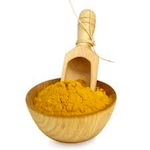Although humans aren’t two legged rodents that have lost their tails, this articles speaks to the power of natural medicine and in particular turmeric! Turmeric has some amazing anti-inflammatory effects and the science behind this herb just keeps getting stronger and stronger. We carry several different extracts of turmeric in our office, because therapeutically just using the herb in food is very hard for the body to absorb. It needs to be heated, ideally with oil, and have a lot of pepper with it, to increase the bioavailability of the curcumin. Curcumin is one of the main active ingredient of turmeric.
I think the most profound effect I have seen to date is a client with metastatic liver cancer taking a special type of turmeric after failing other forms of conventional treatment. This client was given two months to live seven months ago.
I hope you enjoy this little bit of science history!
Originally posted on Wednesday, October 10, 2012 by J. D. Heyes @ Natural News
Incredible, groundbreaking new research just published in the Journal of the Medical Association of Thailand found that the primary polyphenol in turmeric – curcumin – is able to repair and even regenerate the liver tissues in diabetic rats.
Researchers at the Srinakharinwirot University in Bangkok administered curcumin to rats afflicted with diabetes and whose livers demonstrated the characteristic pathology and destruction of tissues and microvasculature. The curcumin was able to trigger a significant reversal of the condition.
“Fascinatingly, liver microvasculature in curcumin treated group developed into regenerate and repair into healthy and normal characteristics,” the research team said, in its findings. “These results optimistically demonstrated the potential use of curcumin as a novel therapeutic agent in liver pathology of diabetic rats.”
The Thai research is just the latest – albeit most promising to date – research showing a treatment link between curcumin and both forms of diabetes, Type I and Type II.
Earlier research reveals similar findings
Researchers, who published their results in the journal Diabetes Care in July, said they discovered that over nine months, a daily dose of curcumin – a compound in curry spice – appeared to prevent new cases of diabetes among people with so-called pre-diabetes, or abnormally high blood sugar levels that could eventually progress into full-blown Type II diabetes, which is also linked to obesity.
That study, which was also Thai-based, followed 240 adults with pre-diabetes who were randomly assigned to either take curcumin capsules or a placebo that looked identical but contained no active ingredient, Reuters reported.
After nine months, 19 of the 116 placebo patients had developed Type II diabetes, compared to none of the 119 patients who took the curcumin.
The researchers, led by Dr. Somlak Chuengsamarn of Srinakharinwirot University in Nakornnayok, Thailand, said their findings were an endorsement.
“Our study showed that the curcumin extract can effectively prevent the prediabetes population from developing type 2 diabetes mellitus,” wrote the research team. “Although we found that the results were quite remarkable, a longer trial may be required to see if the curcumin-treated prediabetes population will eventually develop type 2 diabetes mellitus.”
“Because of its benefits and safety, we propose that curcumin extract may be used for an intervention therapy for the prediabetes population,” the team wrote.
One thing experts agree on is that the concentration of curcumin is not the same in each extract or capsule.
In the July Thai study, participants took six capsules a day containing 250 mg each of “curcuminoids.”
Other health advantages
“Last year, the testing company ConsumerLab.com found that 20 percent of curcumin and turmeric supplements it tested failed the company’s quality review. And the cost of getting the amount of curcumin used in this study would range from 39 cents to $1.50 per day, depending on the supplement used,” Reuters reported.
As for the study’s results, Constance Brown-Riggs, a certified diabetes educator and spokesperson for the Academy of Nutrition and Dietetics, said more research was needed but that what had been discovered thus far “is compelling, and the good news is there seemed to be minimal adverse effects.”
Other health benefits are thought to be linked to this compound, which is one of the most clinically studied ever.
For example, “scientists agree that curcumin may have anti-inflammatory properties and may act as an antioxidant,” says Discovery Health. “Other research is looking into the use of curcumin and turmeric in treating many medical conditions, including Alzheimer’s disease, high cholesterol and osteoarthritis.”
Even if you don’t eat a lot of food from certain cultures that use curry, you have likely eaten something with curcumin. If you’ve had a hot dog with mustard, you have: curcumin gives mustard its distinctive tangy flavor and yellow color.
Learn more: http://www.naturalnews.com/037489_turmeric_liver_regeneration.html#ixzz28wfDIcXs
